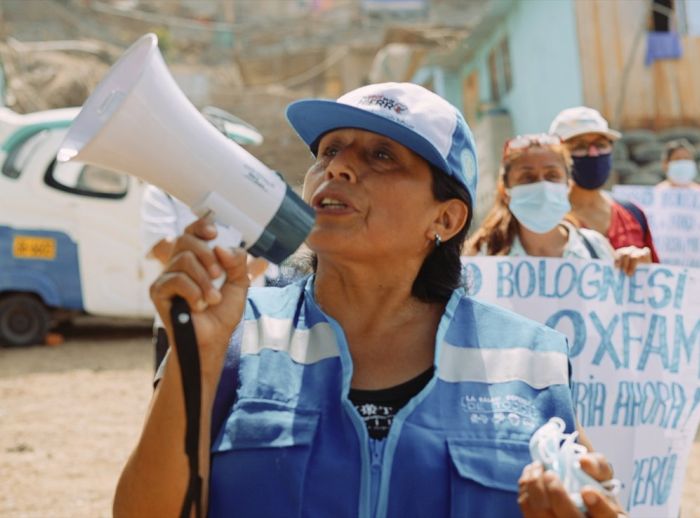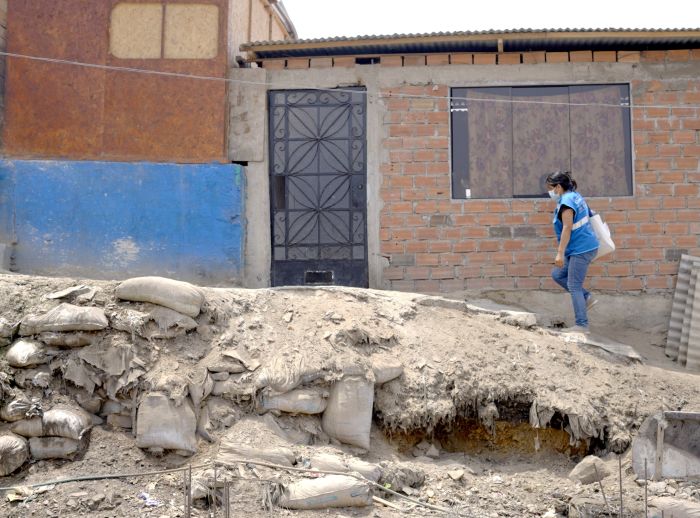- 2 min read
- Published: 24th January 2022
One woman's fight against inequality saves lives in her neighbourhood

In Peru, Janet Fuentes mobilised her community to save lives during the pandemic while they received little to no support from the government.
Peru is the country with the most COVID-19 deaths per capita in the world. When COVID-19 hit in Santa Rosa, a neighbourhood of Lima, people weren’t just dying from getting sick, but also from starvation. Janet Fuentes witnessed dozens of her neighbours fall seriously ill and sometimes die, while the government provided no support and their local health centre shut down.
“The levels of inequality are horrendous... When [a family] waved a white flag from a house, it meant they didn’t have anything left to eat,” Fuentes says. “People are dying in Santa Rosa and nobody is coming."
Fuentes brought together members of her community to found the Anti-COVID Committee to support her neighbours at the height of the crisis. The committee collected and distributed medicine and bottles of oxygen, organised food deliveries to vulnerable families, took care of children with ill parents, and distributed masks. Fuentes’s efforts likely save hundreds of lives in her community.
“Something that hurts us deeply is that these deaths could have been avoided if we had a government that truly cared,” she says.

Tackling the root of the problem
When the pandemic hit Peru, there were only 248 intensive care beds for more than 30 million people. That number has now increased to 3,700 ICU beds through contributions from organisations like Oxfam in Peru and its partner ‘Foro Juvenilde Izquierda’ (Leftist Youth Forum), a grassroots organisation led by young activists promoting among other initiatives the Anti-Covid Community Committees. However, while groups like these are making strides within their communities, the systems and those in control of them are stilling failing people every day.
“We are facing a neo-liberal system that only prioritises wealth,” says Fuentes. “How is it possible that this pandemic has made billionaires out of the pharmaceutical companies?”
Now, Fuentes and the Anti-COVID Committee are demanding responses from the Peruvian government to address the systemic problems in their country that were made worse by the pandemic. They are asking the government to provide their communities with proper healthcare and to denounce “pandemic profiteers”—the transnational companies profiting from vaccines, medicines, and treatments—while Peruvians still lack decent public health coverage.
Through the work of ‘Foro Juvenilde Izquierda’, committees like the one in Santa Rosa are participating in grassroots democratic discussion, engagement, and advocacy with public authorities, and targeting structural problems in the national health system, beyond the immediate context of the pandemic.
Oxfam’s recent report, Inequality Kills, found that inequality results in the death of one person every four seconds. Communities like Fuentes' are hit the hardest when a crisis strikes, meanwhile billionaires continue to amass wealth at a disgusting rate. Enough is enough.
“It’s an insult when money is more important that people’s lives,” Fuentes says.
Together we can fight inequality.
